
Lesbian, gay, bisexual, and transgender (LGBTQ) people in Iran face severe challenges not experienced by non-LGBTQ residents. Sexual activity between members of the same sex is illegal and can be punishable by death, and people can legally change their assigned sex only through sex reassignment surgery. Currently, Iran is the only country confirmed to execute gay people, though death penalty for homosexuality might be enacted in Afghanistan.
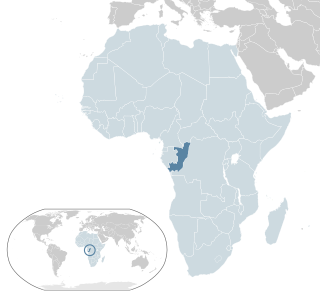
Lesbian, gay, bisexual, and transgender (LGBT) people in the Republic of the Congo face legal challenges not experienced by non-LGBTQ residents. Both male and female expressions of homosexuality are legal in the Republic of the Congo, but same-sex couples and households headed by same-sex couples are not eligible for the same legal protections available to opposite-sex couples, with reports of discrimination and abuses towards LGBT people.

Lesbian, gay, bisexual, and transgender (LGBT) people in Iraq face severe challenges not experienced by non-LGBT residents. Openly LGBT individuals are subject to criminal penalties under the 2024 law making homosexual relations punishable by up to 15 years in prison with fines and deportation; the 2024 law also criminalizes and makes punishable by prison time promoting homosexuality, doctors performing gender-affirming surgery, and men deliberately acting like women. Discrimination is also widespread. Openly gay men are not permitted to serve in the military and same-sex marriage or civil unions are illegal. LGBT people do not have any legal protections against discrimination and are frequently victims of vigilante justice and honor killings.

Lesbian, gay, bisexual, and transgender (LGBTQ) people in the Islamic Emirate of Afghanistan face severe challenges not experienced by non-LGBT residents. Afghan members of the LGBT community are forced to keep their gender identity and sexual orientation secret, in fear of violence and the death penalty. The religious nature of the country has limited any opportunity for public discussion, with any mention of homosexuality and related terms deemed taboo.
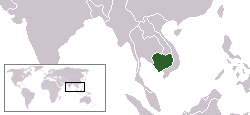
Lesbian, gay, bisexual, and transgender (LGBTQ) people in Cambodia face legal challenges not experienced by non-LGBT residents. Although same-sex sexual activity is legal in Cambodia, it provides no anti-discrimination protections for LGBT people, nor does it prohibit hate crimes based on sexual orientation and gender identity.

Lesbian, gay, bisexual and transgender (LGBT) individuals in the Republic of the Philippines have faced many difficulties in their homeland, such as prejudice, violence, abuse, assault, harassment and other forms of anti-LGBT rhetoric. Many LGBT Filipinos are met with mixed attitudes and reactions by their families, friends and others in their communities, as well as professionals, educators, their national public officials, politicians, attorneys and others working for the government and the rest of the general population.

Lesbian, gay, bisexual, and transgender (LGBT) people in Armenia face legal and social challenges not experienced by non-LGBT residents, due in part to the lack of laws prohibiting discrimination on the grounds of sexual orientation and gender identity and in part to prevailing negative attitudes about LGBT persons throughout society.

Lesbian, gay, bisexual, and transgender (LGBT) people in Azerbaijan face significant challenges not experienced by non-LGBTQ residents. Same-sex sexual activity has been legal in Azerbaijan since 1 September 2000. Nonetheless, discrimination on the basis of sexual orientation and gender identity are not banned in the country and same-sex marriage is not recognized.

Lesbian, gay, bisexual, and transgender (LGBT) people in Djibouti face legal challenges not experienced by non-LGBTQ residents. Although Djibouti does not explicitly criminalise homosexuality, LGBT persons still face stigmatization among the broader population.
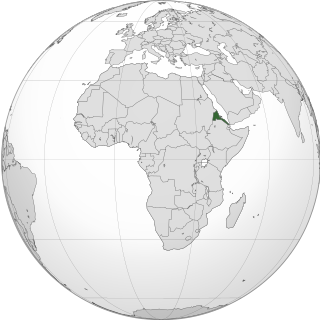
Lesbian, gay, bisexual, and transgender (LGBT) people in Eritrea face severe challenges not experienced by non-LGBTQ residents. Homosexual acts are illegal in Eritrea; typically punishable by up to three years in prison. LGBT persons are reportedly prosecuted by the government and additionally face hostility amongst the broader population.

Discussions of LGBT rights at the United Nations have included resolutions and joint statements in the United Nations General Assembly and the United Nations Human Rights Council (UNHRC), attention to the expert-led human rights mechanisms, as well as by the UN Agencies.

Lesbian, gay, bisexual, and transgender (LGBT) people in Mongolia face legal and social challenges not experienced by non-LGBT people, though there have been substantial improvements since the 1990s. Homosexuality was criminalised in Mongolia in 1961 through its Criminal Code. Following the Mongolian Revolution of 1990 and the peaceful transition to a democracy, homosexuality was legalised and awareness about LGBT people has become more prevalent. Hate crimes on the basis of sexual orientation and gender identity result in additional legal penalties. Hate speech based on these two categories has been outlawed in the country since 1 July 2017. Households headed by same-sex couples are, however, not eligible for the same legal protections available to opposite-sex couples.
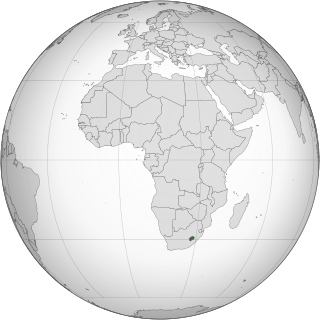
Lesbian, gay, bisexual, and transgender (LGBT) people in Lesotho face legal challenges not experienced by non-LGBTQ residents. Lesotho does not recognise same-sex marriages or civil unions, nor does it ban discrimination on the basis of sexual orientation or gender identity.
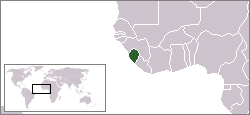
Lesbian, gay, bisexual, and transgender (LGBT) people in Sierra Leone face legal challenges not experienced by non-LGBTQ residents. Male same-sex sexual activity is illegal in Sierra Leone and carries a possible penalty of life imprisonment, although this law is seldom enforced.

Lesbian, gay, bisexual, and transgender (LGBT) people in Kyrgyzstan face significant challenges not experienced by non-LGBTQ residents. Both male and female same-sex sexual activities are legal in Kyrgyzstan, but same-sex couples and households headed by same-sex couples are ineligible for the same legal protections available to opposite-sex married couples.

Lesbian, gay, bisexual, and transgender (LGBT) people in North Macedonia face discrimination and some legal and social challenges not experienced by non-LGBT residents. Both male and female same-sex sexual activity have been legal in North Macedonia since 1996, but same-sex couples and households headed by same-sex couples are not eligible for the same legal protections available to opposite-sex married couples.
This article gives a broad overview of lesbian, gay, bisexual and transgender (LGBT) history in Canada. LGBT activity was considered a crime from the colonial period in Canada until 1969, when Bill C-150 was passed into law. However, there is still discrimination despite anti-discrimination law. For a more detailed listing of individual incidents in Canadian LGBT history, see also Timeline of LGBT history in Canada.
The modern South Korean LGBT rights movement arose in the 1990s, with several small organizations seeking to combat sexual orientation and gender identity discrimination.

The following outline offers an overview and guide to LGBTQ topics:
This overview shows the regulations regarding military service of non-heterosexuals around the world.

















